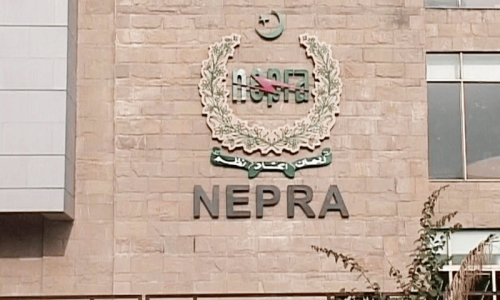NIAMEY: A jihadist group that claimed twin suicide bombings that killed at least 20 people in northern Niger threatened Friday to launch more attacks, as residents sorted through the devastating aftermath of the unprecedented blasts.
Signatories in Blood — the group whose brazen seizure of an Algerian gas plant in January left 38 hostages dead — said it would continue attacking Niger until the country withdraws its forces from neighbouring Mali, where they are part of a French-led military campaign against Al-Qaeda-linked Islamists.
“We will launch further operations” in Niger, the group said in a statement posted on Islamist Internet forums that also threatened France and other countries involved in what it called the “Crusader campaign” in Mali.
It said the attacks were its “first response” and threatened to “bring the fight to the interior of his country unless (Niger President Mahamadou Issoufou) withdraws his mercenary army” from Mali.
Founded by veteran Algerian jihadist Mokhtar Belmokhtar — whom Chadian forces claimed had been killed in combat in Mali — Signatories in Blood was the second group to claim Thursday's bombings at an army base in the main northern city of Agadez and a uranium mine majority-owned by French nuclear group Areva.
The Movement for Oneness and Jihad in West Africa (MUJAO), one of three Islamist groups that seized northern Mali last year before French-led troops drove them out, also claimed responsibility and called the attacks retaliation for the Malian campaign.
Officials said 18 soldiers and a civilian were killed along with four attackers at the army base. One person was killed at the mine, some 250 kilometres (150 miles) to the north, where 14 others were wounded.
French Defence Minister Jean-Yves Le Drian said Friday that French special forces had intervened at the army base to help fight off Islamist fighters who attacked after the bombing there.
Chad's President Idriss Deby Itno had claimed in April that Signatories in Blood's Belmokhtar had been killed in northeastern Mali, but the group said Thursday he had personally overseen the Niger attacks.
“It was Belmokhtar himself who supervised the operational plans,” spokesman El-Hassen Ould Khalil was quoted as saying by Mauritanian news agency Al-Akhbar.
Formerly a top leader of Al-Qaeda in the Islamic Maghreb (AQIM), one of three Islamist groups that had seized northern Mali, Belmokhtar was forced out of the group late last year and began staging his own attacks with Signatories in Blood.
Some residents of Niger's mostly desert north said they were still in shock after the suicide bombings, the first attacks of their kind in the impoverished former French colony.
“Life has gone back to its daily pace, but people are still very shocked by what happened,” Agadez tailor Babale Abdou told AFP by phone.
Niger's public television network broadcast images of the destruction, including pieces of the suicide bombers' flesh strewn across the ground, debris from a four-by-four they blew up and roofs torn off their buildings at the military base.
Agadez shopkeeper Elhadj Hamit linked the attacks to the 2011 conflict in Libya, where rebels overthrew dictator Moamer Kadhafi in a civil war that saw arms and fighters flood into the region.
“The aftermath of the crisis in Libya still hasn't healed and these twin attacks plunge the region back into fear, despair and uncertainty,” he said.
Analysts have also linked the Libyan conflict to the crisis in Mali, which began when members of the country's Tuareg ethnic group — some of whom had fought alongside Kadhafi's forces — launched a new rebellion for independence in the Malian north.
Initially fighting alongside MUJAO and two other Islamist groups, the Tuaregs were later pushed out by their former allies, who were less interested in Tuareg independence than sharia, under which they brutally ruled the region for 10 months until France intervened in January.












































